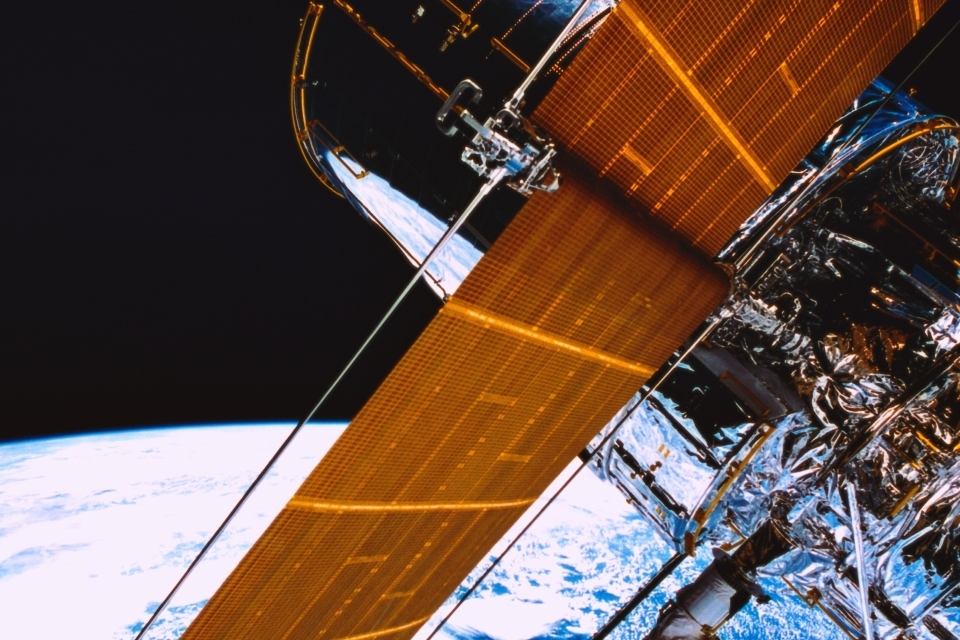Space technology in the UK: investment opportunities
Published 7 April 2014
1. Overview
The UK’s space industry contributes £9.1 billion to the economy and employs over 29,000 highly skilled people. With over 260 companies in the industry, the last few years have seen average annual company growth of 10%.

A satellite in space; the UK is a global leader in space telecommunications
The UK has strengths in a number of areas where there are investment opportunities for overseas companies and investors. These include:
- satellite communications
- earth observation
- space security
Many UK companies are involved in software design and systems integration for space technology. This is helped by strong academic research into development of new products which have helped the UK space industry grow quickly. The sector’s small and medium-sized enterprises (SMEs) have experience of developing innovative methods of working, sharing risk and working with each other.
2. Satellite communications
The UK has a 20% share of the global telecoms satellite market, the largest area of the UK space industry. It designs and manufactures telecommunications satellites including building applications for high capacity broadband, broadcast and fixed satellites. This will help reduce costs and introduce new services and applications.
Companies in the UK are also working on future mobile satellites and system infrastructures for commercial applications not related to space. The full service chain in the UK works with:
- system levels - for complete turn-key communications satellite systems
- sub-system levels - spacecraft platforms, payloads and antennas, teleports, network and service management
- equipment level - avionics, high power amplifiers, terminals
- consultancy services - technical, operational, design and regulatory
3. Earth observation
The UK is a partner in all the major Earth observation programmes in Europe including being the largest supplier of Earth observation satellite training programmes around the world. It has 40 years of experience in building radar remote sensing satellites for both civil and security use.
Work across the sector includes:
- designing and building satellite, ground and service systems
- developing major satellite subsystems including spacecraft platforms, low cost radar and optical payloads, microwave sounders, propulsion, coolers, precision mechanisms, data handling, central electronics, software and detectors
- providing full data management services including archiving, processing and delivery of value added information services
- working with public private partnerships
4. Space security
UK companies provide the UK’s defence department with secure communications, allowing military operations on land, sea and air to be controlled anywhere in the world.
5. Successes in UK space work
The last 4 years have seen big successes in the industry. These include:
- the UK Astronomy Technology Centre delivering the Mid-Infrared Instrument for the James Web Space Telescope to NASA
- the government funding Nova SAR, the new earth observation satellite constellation to help monitor the earth’s carbon footprint
- Ukube1, the UK’s first national cubesat, passed its flight review in June 2013 and will launch in 2014
- start up of a space applications Catapult (physical centre where the UK’s businesses, scientists and engineers work side by side) to help understand how space related services can apply to commercial applications
- the European Space Agency’s centre for space applications and telecommunications opened in Harwell - the new Harwell Science and Innovation Campus in Oxfordshire is part of the International Space Innovation Centre
- Major Tim Peake was assigned a 6 month mission on the International Space Station in 2015 - he’ll be the first British astronaut in space for more than 20 years
6. UK government help for industry
In 2013 the UK government announced a £200 million investment to develop the latest space technology. This included:
- £60 million investment in SABRE - a British-designed rocket engine which could revolutionise air travel and reduce the cost of reaching space
- £134 million contract for space technology company Astrium to develop instruments for the next generation of weather satellites - this is a direct result of the UK’s increased investment in the European Space Agency (ESA)
7. Partnerships working together
7.1 UK Space Agency (UKSA)
The UKSA works under the UK government Department for Business, Innovation and Skills (BIS). UKSA is supporting and furthering the growth of the UK space sector. It also works on UK civil space activity and raises the profile of UK space activities at home and abroad.
7.2 UK Space
UK Space is the main trade association for the space and satellite industry, representing about 75% of the UK space industry.
7.3 The Association of Specialist Technical Organisations for Space (ASTOS)
ASTOS is a UK trade association for small and medium sized companies operating in the space sector
7.4 UK Space Directory
The directory gives a comprehensive list of UK companies involved in the space industry and includes their capabilities.
7.5 Knowledge Transfer Network (KTN)
The Space KTN is the Space Special Interest Group of the KTN and brings together people from businesses, universities, research, finance and technology organisations to think about new ideas by working together and sharing knowldge.
8. Locations
There are different locations across the UK known as Enterprise Zones that offer investors incentives to locate themselves there including:
- reduced taxes
- simpler planning rules
- financial benefits
Many Enterprise Zones have employment clusters, where businesses from the same sector are located in the same zones.
9. Contact Department for International Trade (DIT) for help
DIT can provide overseas companies and investors with more information about opportunities in the UK’s space market.
Enquiries for overseas companies looking to set up in the UK
Email enquiries@ukti-invest.com
Contact form https://www.contactus....
Telephone: +44 (0)207 000 9012
Overseas companies can contact the Investment Services Team for information about setting up in the UK including the help that is available.
